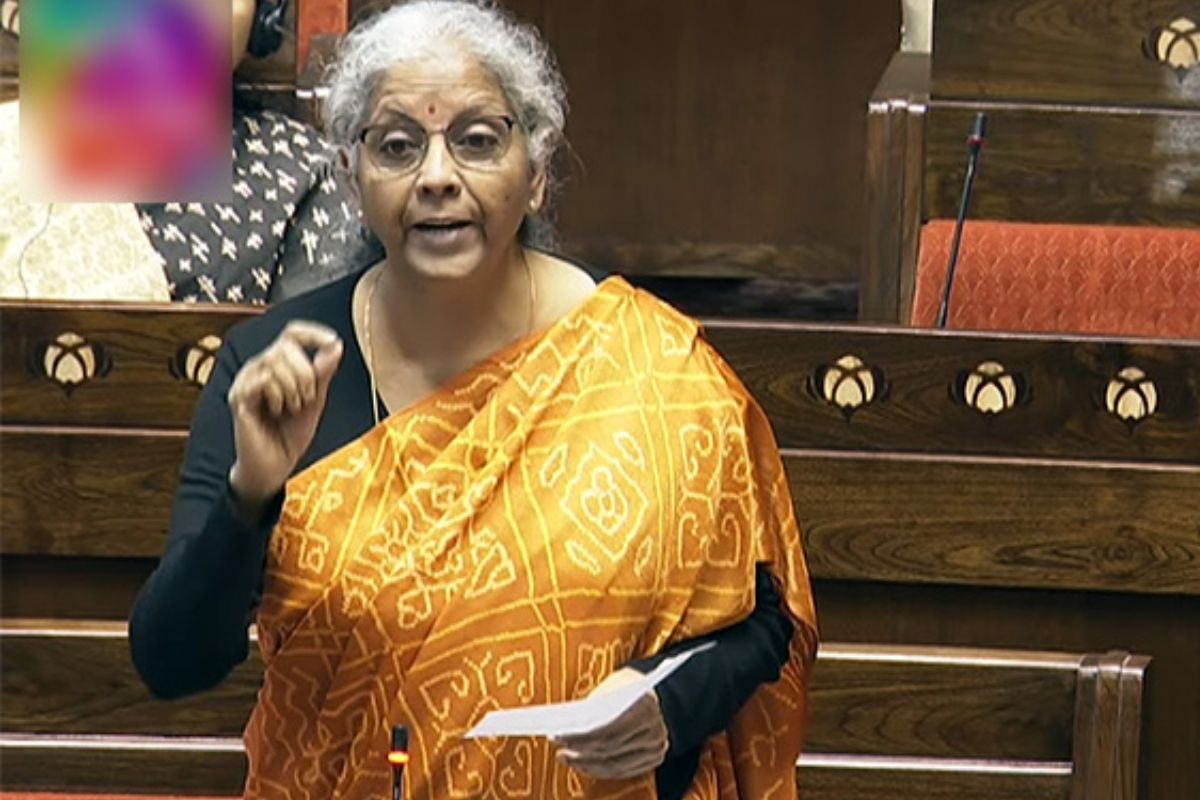Bipartisanism
The Union Budget for 2024-25 has sparked significant discussion due to striking resemblance of some provisions to promises made in the Congress party’s 2024 Lok Sabha election manifesto.
Finance Minister Nirmala Sitharaman on Thursday tabled a ‘White Paper’ on the Indian economy in the Lok Sabha which blamed the erstwhile UPA government for the ‘mountain of bad loans’ and ‘double-digit inflation’ in the period before the Narendra Modi-led government took charge.

Union Finance Minister Nirmala Sitharaman
Finance Minister Nirmala Sitharaman on Thursday tabled a ‘White Paper’ on the Indian economy in the Lok Sabha which blamed the erstwhile UPA government for the ‘mountain of bad loans’ and ‘double-digit inflation’ in the period before the Narendra Modi-led government took charge.
“The UPA government failed miserably to facilitate economic activities. Instead, it created hurdles that held back the economy. It basked in the after-glory of the lagged effects of the reforms of the Vajpayee-led NDA government and benign global conditions and proceeded to exploit the resultant fast economic growth for narrow political purposes,” the White Paper stated.
The result was a “mountain of bad loans”, a high fiscal deficit despite “much of it being hidden”, a high current account deficit, “double-digit inflation for five years” which hit the pockets of many Indians, and “membership of the club of ‘Fragile Five’ in 2013”, the document stated.
Advertisement
Here, the Fragile Five was the term issued to India, along with Turkey, Brazil, South Africa, and Indonesia, by investment bank Morgan Stanley for allegedly being too reliant on foreign investment to fuel their growth ambition.
Notably, the White Paper is aimed at highlighting the alleged economic mismanagement under the United Progressive Alliance government, which was led by the Congress from 2004 to 2014.
It further claimed that the economic policies of the UPA government drove investors away from the country.
The coalition government not only failed to impart dynamism into the economy but also robbed the economy of it as a result of which our industrialists went on record stating that they would rather invest abroad than in India, it said.
“To drive investors away is easy but to win them back is hard. The UPA government also demonstrated that it is easier to hurt the economy than it is to help it. They inherited a healthy economy and bequeathed an enfeebled one to us. We have restored its vitality,” it further noted.
The paper said the government chose not to reveal the shortcomings of the UPA earlier, as it would have further shaken investor confidence.
The need of the hour was to attract investments, both domestic and global, and to build support for the much-needed reforms, the paper said, adding that the government believed in ‘Nation First’ and not in scoring political points.
“In 2014, when we formed the government, the economy was in a fragile state…Our government refrained from bringing out a White Paper on the poor state of affairs then. That would have given a negative narrative and shaken the confidence of all, including investors,” it said.
Sitharaman further highlighted that since the time our government assumed power in 2014, the Indian economy has undergone many structural reforms that strengthened the macroeconomic fundamentals of the economy. The government has undertaken diverse reforms to restore and enhance the potential of the economy by creating a business-friendly environment, improving ease of living, and strengthening the governance systems and processes.
This led to a substantial decline in policy uncertainty in India, which had peaked under the UPA government.
In the past 10 years, the government has revitalised the stagnant financial sector and overhauled the credit ecosystem within the economy, bringing about significant improvements, she said.
Our government’s vision of “Nation First” has transformed the quality of India’s infrastructure and logistics ecosystem, which will be key for the country to attract investments and expand its presence in global value chains, the Finance Minister added.
“The reform measures undertaken by our government have significantly elevated the medium-term investment prospects of the economy. Both domestic and foreign investors express high optimism regarding India’s growth potential, anticipating lucrative opportunities as the Indian economy expands.”
Advertisement